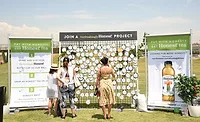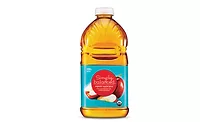Category Focus
Private-label beverages are combining value with quality
Premiumization proliferates among private-label beverages

Historically known for its value attributes, private-label beverages are getting a premiumization boost as consumers also seek quality from these cost-friendly products. In its January report titled “Private Label Food and Drink Trends – US,” Chicago-based Mintel notes value is the expectation from consumers, while quality has emerged as the differentiator.
“Consumers expect even value-oriented store brands to be at least on equal caliber in quality and taste with national brands,” the report states. “And three quarters of private label consumers believe store brands reflect on the quality of the retailer itself, indicating that retailers are only as strong as their private label offerings.”
With this association, retailers are bolstering their portfolio to include vanguard premium beverages, including cold-brew coffees and cold-pressed juices. Mark McKeown, vice president and principal of client insights for Chicago-based Information Resources Inc. (IRI), notes that retail demand will determine whether these products will maintain viability for retailers.
McKeown adds that continued expansion of private brands into tiers will focus on premium, lifestyle, and health and wellness, citing an August FMI survey in which 77 percent of retailers listed these as their No. 1 response.
“Private brands [are] becoming [a] critical point of differentiation between competing retailers/channels,” he says.
Given this point of differentiation, retailers are focusing on the improvement of product quality for their store brands, McKeown adds.
The private-label buyer
As retailers look to strengthen their store brand portfolio, market research suggests that younger consumers have the strongest appetite for private label.
“Even in categories where name brands have long been dominant, younger adults are open to private label offerings,” Mintel’s report states. “These categories are typically center-store food/drinks and could be ripe for innovation that speaks to contemporary trends. Younger adults outstrip older consumers in their interest in clean formulations and environmental and ethical practices.”
For instance, private label is the leading seller within the single-cup coffee segment accounting for more than $1 billion in sales, a 7.3 percent increase, for the 52 weeks ending Oct. 4 in total U.S. multi-outlets and convenience stores, IRI data shows. Private-label refrigerated almond milk also continues to post strong growth with sales up 15.3 percent, totaling $268 million.
IRI’s McKeown also notes that younger consumers could serve as a tailwind for private label’s future.
“Younger consumer adoption for private brands [is] at faster rate than prior generations,” he says.
Consumers also are expanding private-label purchases outside of traditional supermarkets as other channels bolster their offerings.
“Reflecting overall shifts in food and drink shopping patterns, sales of private label food and drinks have seen their greatest growth outside of traditional supermarkets,” Mintel’s report states. “Mass merchandisers, club stores and dollar stores in particular, are dedicating focus on private label product development. With more than half (53 percent) of consumers saying store brands influence where they shop for food/drink, these other retailers are well-positioned to be a long-term threat to traditional grocery stores.”
7-Eleven Inc., Irving, Texas, continues to add to its private beverage portfolio. In the past two years, the convenience retailer has introduced energy and sports drinks, Icelandic spring waters, organic milk and cold-pressed juices. The latest to the fold is Triton, a new energy drink with L-Theanine, created to meet customers' desire for a sugar-free energy drink option, it says.
Although the private-label market looks well positioned for future growth, IRI’s McKeown notes that eCommerce will impact some of that performance as retailers dedicate more capital to eCommerce technology and execution build-out.
Looking for a reprint of this article?
From high-res PDFs to custom plaques, order your copy today!





